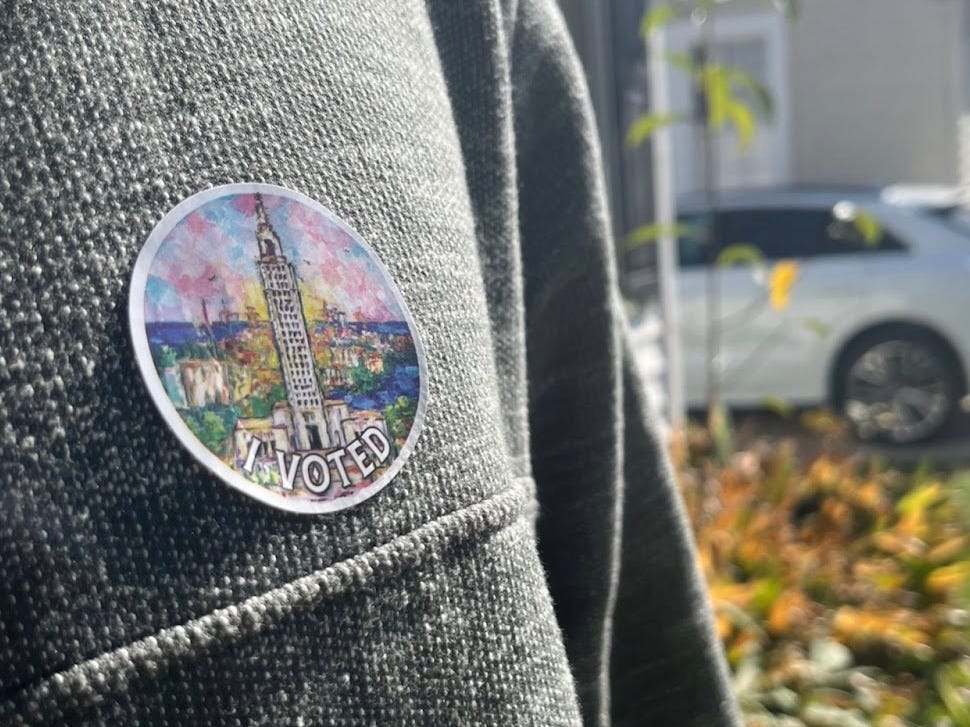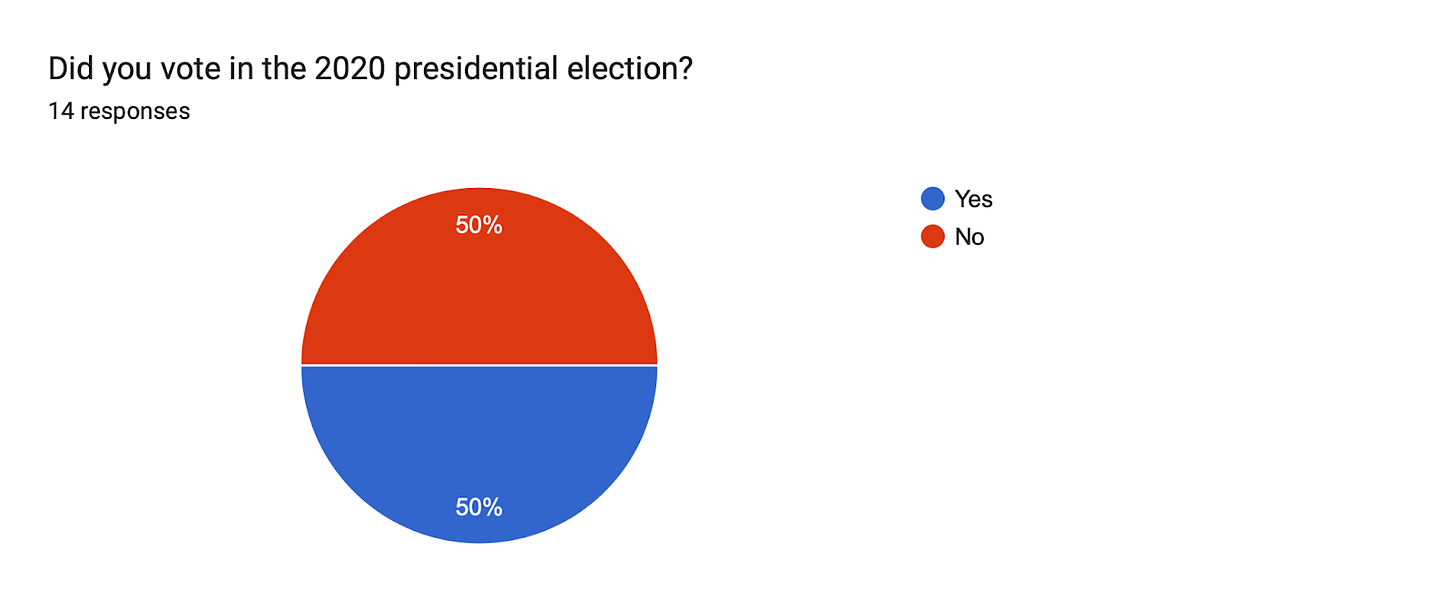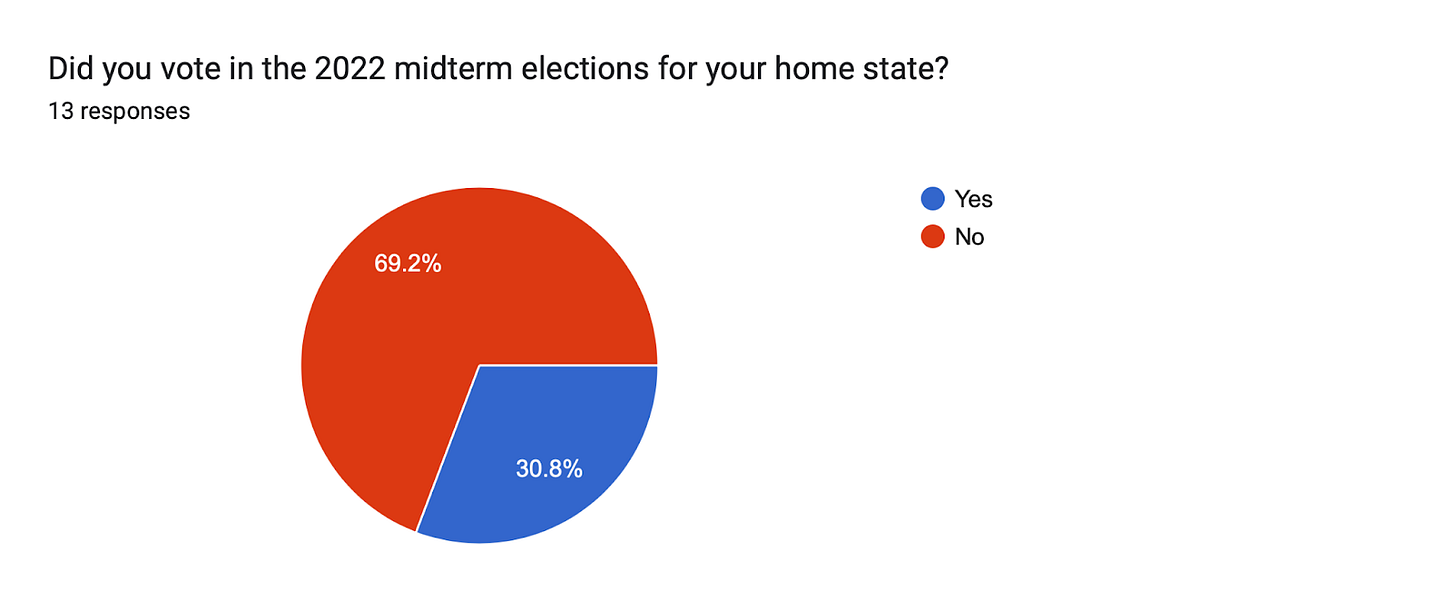MC Students Vote in 2022 Midterm Elections
It was found that 50% of the 14 students had voted in the 2020 presidential election, but only 30% of the thirteen respondents had voted in the 2022 midterm elections in their home state.
The recent midterm election results are now determining who will be each state’s governor and who will occupy the seats of the U.S. Congress for the next two-year term. Voting, an integral part of America’s democracy, has seen an uptick in college student participation in the last decade, this demographic being reportedly the lowest of any group of Americans to vote.
Annual statistic analysis via Tufts University’s Institute for Higher Education of Medford, Mass. saw 66% of the 67% of college-age voters who registered to vote also submit their ballot in the 2020 midterm elections. However, the story may not be the same for the 2022 midterm elections.
At Mississippi College, November 7, 2022, was a date marked on some students’ calendars, according to a student-run survey conducted last week. Fourteen MC students responded to various questions pertaining to voter participation in the last four years.
It was found that 50% of the 14 students had voted in the 2020 presidential election, but only 30% of the thirteen respondents (one respondent chose to not answer this question) had voted in the 2022 midterm elections in their home state.
In one question about why students did not vote in the 2022 midterm elections, nine of the 14 respondents offered their insight: three cited not having enough time to go home on the mid-week polling day, two cited difficulty getting an absentee ballot on account of not being able to be physically present at the polls of their home state (one saying it was “too much of a hassle to do mail-in ballots”).
Two respondents said they didn’t know when the midterm elections were taking place, one said they weren’t registered to vote, and another explained that they didn’t understand the importance of the midterm elections.
Carson Hughes, one of the 14 students who responded to the survey, expounded on the importance he believes student voices can make in a modern American democracy if his peers simply participate.
“My vote alone will never change the outcome of an election, but I vote because I have hope that others aligned with me [politically] will do the same,” said Hughes. “I think if we, as college students, but even as US Citizens, begin to recognize that the way our current system works is up to us, we would be more motivated to participate in it, and as a result more likely to actually demonstrate its efficacy.”
“We could create a self-fulfilling prophecy where constituents, motivated to vote out of genuine faith in each other, incentivize candidates to meaningfully respond to issues we care about, resulting in an election where voters are satisfied with a truly representative candidate, and are motivated to vote again in the future.”
On the critique of his fellow students who did not participate in voting this year, Hughes attributed this to a lack of true dialogue about political issues on the Christian campus.
“My biggest gripe with my peers at MC though would be how few people here seem to be involved in the political process at all. MC seems to be a place of lots of beliefs but very few actual opinions,” said the sophomore English Writing and History major. “I think many Christian students at this school likely have lots of ideas about their faith and how they live it out, but that line of thinking rarely influences their political ideas and even less any sort of political involvement.”
While concerned about the seeming political apathy of the MC student population, Hughes also found the environment refreshing in some respects, especially in light of how national public policy is so hotly debated outside the MC bubble.
“It's a critique I can only partially make in good faith because truly part of what has been so nice about going to this school has been how removed it feels from the toxicity and polarization that characterizes so much of the current discourse.”
However righteous the cause of remaining apolitical on a college campus, students should be encouraged to be an active part of the government that serves them.
“I struggle with whether this removal [of actual political opinion] is a genuine ascendancy from the conflict that results from a deep understanding that these issues will not be solved through petty partisanship. Or, [if it is] simply the privilege of ignorance that is so frequently enjoyed by those largely untouched by the fallout of these issues,” said Hughes.
“My cynicism skews me towards the latter, but my common sense tells me that- like the feelings of most Americans- this complexity cannot be characterized through a binary.”





